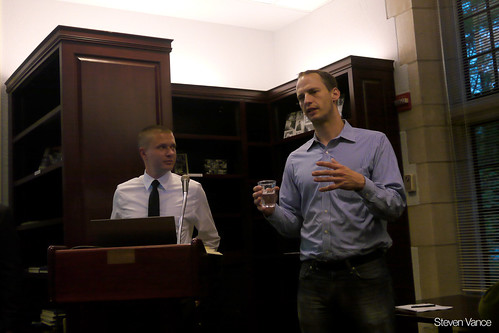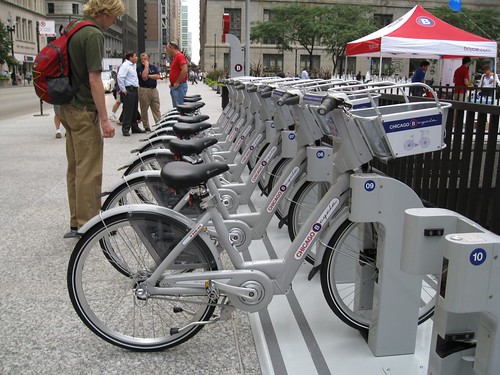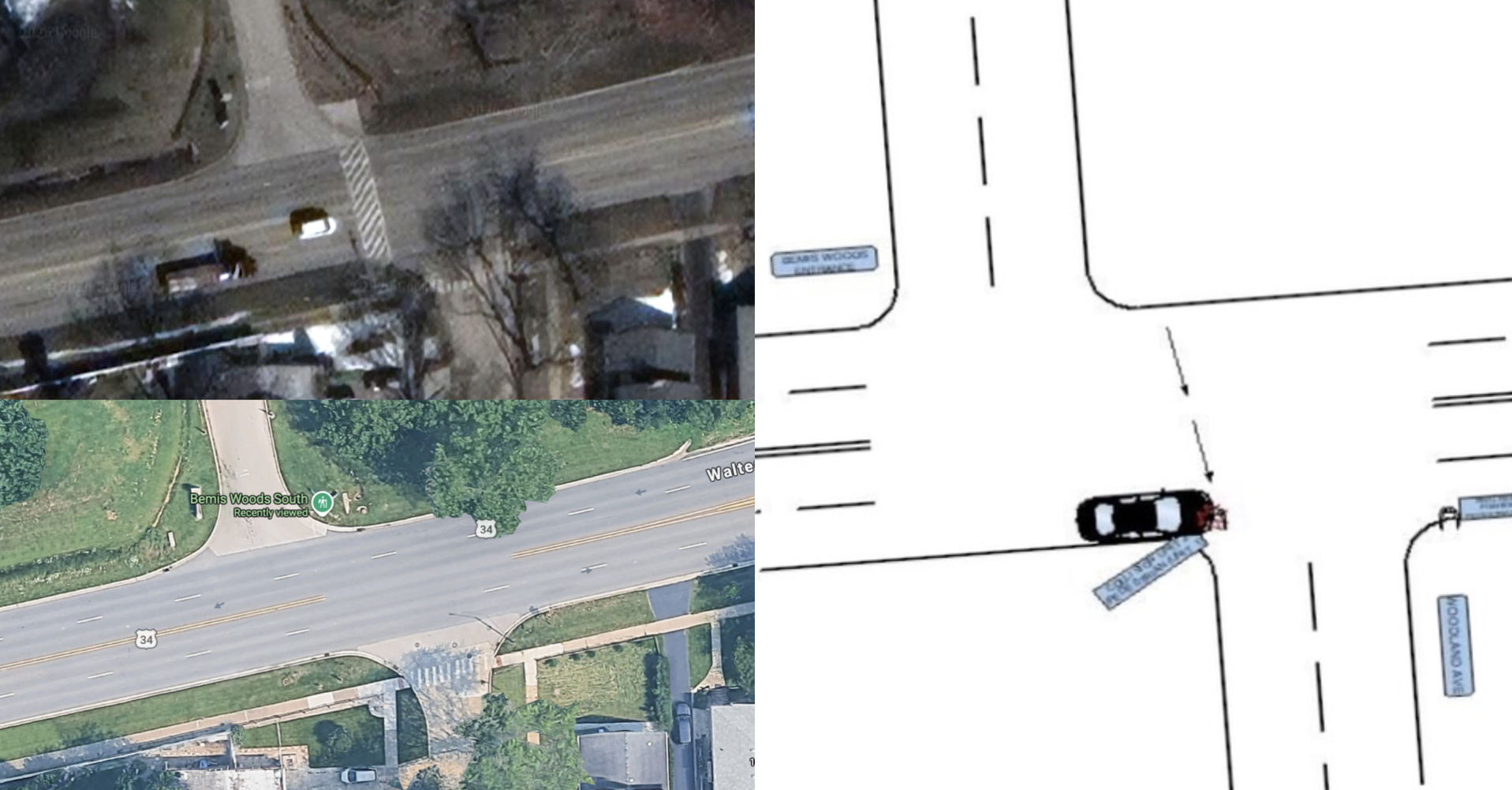For weeks, rumors have been circulating that there has been a re-shuffling of job responsibilities at the Chicago Department of Transportation, but the agency hadn’t made an official announcement about the changes. Most notably, word on the street was that Ben Gomberg, Chicago’s bicycle program coordinator since 1996, was no longer managing the day-to-day operations of the bike program but was instead focusing his efforts on the city’s new bike-share system. After we contacted the department for more info, Deputy Commissioner Scott Kubly offered to provide details on the reorganization, which has actually been in effect since late January.
A new "complete streets group" is combining most of the functions of CDOT's bike, pedestrian and streetscaping sections. “Fifteen years ago you might have had a bike coordinator and a pedestrian coordinator and someone working on transit projects, but now the transportation field is recognizing the need for complete streets and multimodal planning.” Kubly said. “So the organization should reflect the reflect the policy we’re promoting. We’ve created a new complete streets implementation group, recognizing that all road projects we work on should be complete streets. That’s exciting because it institutionalizes the policy.”
As part of the re-org, traffic engineering responsibilities have been divided into three groups. The “traffic engineering group” is now responsible for “bread-and-butter” signal timing, Kubly said. The “safety engineering group” is handling automated red light and speed camera enforcement, as well as safety zones around schools and parks. And the “traffic technology group” is responsible for the city’s traffic management center and creating traffic signal priority for bus rapid transit.
The Chicago Department of Housing and Economic Development has divided the city into six regions for planning purposes, and CDOT’s new “citywide planning group” is a parallel transportation planning section, Kubly said. A new “traffic studies group” also divides the city into six sections to do traffic analysis. Cross-agency coordination in each of these six areas should help increase efficiency and cut costs.
The new “citywide services group,” headed by Sean Wiedel, formerly with Chicago’s now-defunct Department of Environment, is responsible for several environmental and sustainable transportation initiatives. Greencorps, the Chicago Conservation Corps, and the Sustainable Backyards program foster the growth of green jobs and environmentally friendly household practices. The group will arrange the installation of fueling stations for electric cars and vehicles that run on compressed natural gas.
The citywide services group is also responsible for a new “travel training” transportation demand management program launching this year that will educate Chicagoans about how to get around the city efficiently and economically. The city’s Bicycle Ambassadors and Safe Routes Ambassadors programs, both managed by Charlie Short, are also now housed in this section. And bike sharing is also part of the group.
"Ben's Gomberg's 16-plus years of work on bicycle projects has laid the foundation that got us to this point," Kubly said, adding that it makes sense for Gomberg to stop working on bikeways and bike parking to concentrate on implementing bike-share. “It’s going to be a $10-15 million operation,” he said. “We’re going to need someone to make sure that [contractor] Alta Bicycle Share is performing according to our requirements. A performance standard is meaningless if you’re not monitoring it.” Gomberg will also be responsible for getting the rental kiosks installed and ensuring that the vehicles are well distributed and maintained.
Janet Attarian, formerly head of CDOT’s streetscape and sustainable design program, is now in charge of the complete streets group, which encompasses streetscaping, the pedestrian program (still managed by ped coordinator Suzanne Carlson), bikeways engineering, bike parking and more. Attarian was already responsible for an impressive number of projects before the re-org: multiple streetscapes, the Bloomingdale elevated greenway, a new multiuse path along the North Branch of the Chicago River, the Make Way for People public space initiative, and more. But Kubly doesn’t think she’ll be overloaded with her new responsibilities. “She’s a busy lady,” he acknowledged. “But it’s more about managing the people who are doing this work.”
Kubly says it's logical to combine several different sustainable transportation programs in the complete streets group. “If you look at a project like the new buffered bike lanes on South Chicago Avenue, it was really a complete streets project,” he said. “It was as much about calming traffic as putting in bike lanes.” South Chicago is generally 70-feet-wide with 10-12,000 cars per day, running parallel to the Chicago Skyway. “There are a lot of trucks choosing to take it as an alternative to the tollway and driving very fast. By converting the four-lane road into two travel lanes plus bike lanes and turning bays, we made it much safer for pedestrians to cross the street.”
The re-org is going to be particularly helpful for planning new protected bike lanes on streets such as Milwaukee Avenue and Vincennes Street, Kubly said. “It’s not just where do you put the protected lanes but where do you put the bike-share kiosks, the on-street bike parking corrals and the “People Spots” [parklets]. Now we’ll have all those people together in one room to talk about what Milwaukee will look like. It’s all part of one coordinated effort.”







